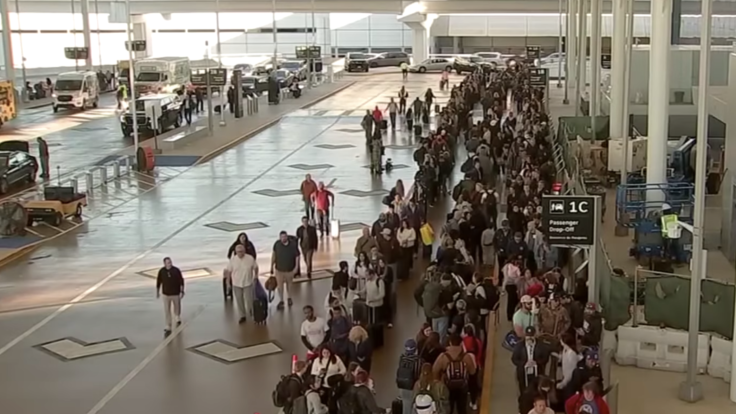What The Government Shutdown Means For Thanksgiving Flights — A Complete Guide
With flights slashed by up to 10 per cent and staffing gaps widespread, travellers face chaos ahead of the holiday rush

A crippling shutdown of federal funding has thrown American holiday air travel into turmoil, threatening to derail Thanksgiving plans of thousands of travellers.
Flight Cuts and Staffing Crisis Hit Major Airports
In recent weeks, the Federal Aviation Administration (FAA) has imposed reductions on operations at forty of the nation's busiest airports, cutting airline traffic by up to 10 per cent in the lead-up to the holiday peak.
The shutdown has left large numbers of air traffic controllers and security screeners working without pay. Absenteeism and fatigue among controllers have spiked sharply, prompting regulators to scale back flights to maintain safety but producing cascading delays and cancellations.
Sean Duffy, the Transportation Secretary, has warned that if the shutdown continues, travel capacity could shrink further and a "substantial number" of Americans may not be able to travel for Thanksgiving.
At hubs such as Hartsfield‑Jackson Atlanta International Airport, LaGuardia Airport, and Newark Liberty International Airport, delays and cancellations have surged, with some airports reporting that nearly half of departing flights are disrupted.
Widespread Chaos: Cancellations and Delays Mount
Flight cancellations have surged. On weekends following the initial cuts, more than 2,700 daily airline cancellations were recorded. Some days saw more than 2,100 flights cancelled in a single 24-hour span.
Where flights are still operating, delays are extreme and unpredictable. Passengers report hours-long ground holds, re-routing, and cascading knock-on effects. Some flights are cancelled with little notice, leaving travellers stranded or forced to accept significant schedule shifts. Posts on the social media platform Reddit document repeated days of over 1,000 cancellations and longer waits at major airports.
One frequent flyer wrote: 'I'm supposed to fly out in two weeks, and I don't even want to set foot in an airport.'
The disruption has led to a huge backlog as travellers attempt re-bookings, compete for fewer available seats, and scramble to get home for the holiday.
Officials Insist Safety is Priority Amid System Strain
Despite the upheaval, aviation officials insist that safety remains non-negotiable. They say the reductions are a necessary response to fatigued staffing and widespread absences among controllers. 'We keep this airspace as safe as possible,' the Secretary said.
The shutdown has also caused long-term stress on the system. Some experienced controllers have taken leave or resigned. Training and certification pipelines have been disrupted, and recovery could take weeks or months.
Experts caution that even if funding is restored rapidly, the system will take time to stabilise. Flights will need to be re-sequenced, staff need to return, schedules re-balanced, and passenger demand managed carefully.
How Travellers Should Prepare: Strategies For Avoiding The Worst
First, monitor your flight status constantly. Use your airline's app and tracking services, such as FlightAware, to check for cancellations or routing changes as early as possible.
Second, if your flight is cancelled because of the shutdown, under the rules of the U.S. Department of Transportation, you are entitled to a full refund, even if you booked a non-refundable fare. This includes situations where scheduling changes and capacity reductions occur.
Third, consider booking alternate routes. Flights out of less-affected regional airports, travelling earlier in the week, or opting for flights with extra buffer time can mitigate risk. If possible, choose nonstop flights and build in extra days to absorb delays triggered by knock-on effects.
Fourth, travel insurance and airline change waivers may provide a safety net. Some carriers offer credits or rebooking support for passengers affected by extraordinary disruptions.
Fifth, arrive early at airports. Expect longer security lines and potential staffing bottlenecks. Avoid tight connections when possible.
The government shutdown has exposed the fragility of a system built for maximum capacity and razor-thin margins. Travellers this Thanksgiving face high risks, shrinking schedules, and serious uncertainty. Plan early, stay agile, and prioritise safety as the industry works to stabilise.
© Copyright IBTimes 2025. All rights reserved.




















